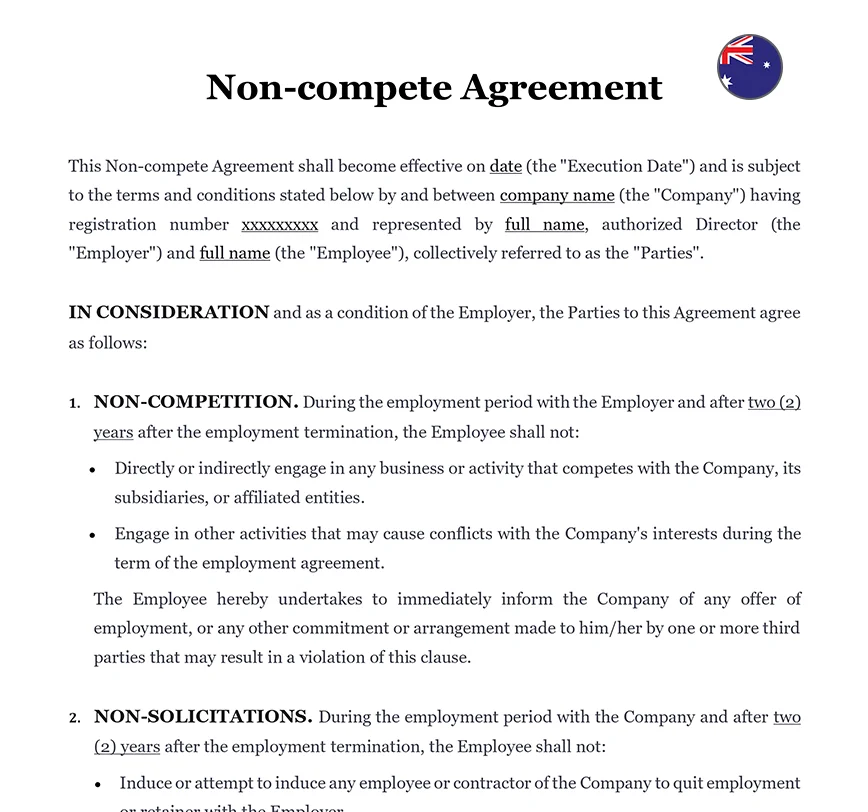Ready to use legal template
Drafted by lawyers
Compliant with Australian law
Learn more about Employee Non-compete Agreement in Australia
An employee non-compete agreement, also known as a non-competition agreement or a restraint of trade clause, is a legally binding contract between an employer and an employee. This agreement prohibits the employee from engaging in competitive activities that may harm the employer’s business interests during and after the employment relationship. Our easy-to-edit templates streamline the document preparation process, ensuring that you have professionally crafted documents at your fingertips, ready to be customized to your unique needs.
Table of contents
-
What is the purpose of an employee non-compete agreement in Australia?
-
What are the key components included in an employee non-compete agreement in Australia?
-
How enforceable are employee non-compete agreements in Australia?
-
What factors determine the validity and reasonableness of non-compete clauses in Australia?
-
Are there any limitations or restrictions on the use of non-compete agreements in Australia?
-
How can employers draft effective and legally compliant non-compete agreements in Australia?
-
What are the implications for employees who breach non-compete agreements in Australia?
What is the purpose of an employee non-compete agreement in Australia?
The purpose of an employee non-compete agreement in Australia is to protect the legitimate business interests of the employer by restricting the employee from engaging in competitive activities that could harm the employer’s business after the termination of employment. Non-compete agreements aim to prevent employees from:
1.Directly competing with the employer
2.Working for competitors
3.Soliciting clients or customers
4.Disclosing confidential information or trade secrets
By imposing reasonable restrictions, non-compete agreements seek to safeguard the employer’s intellectual property, client relationships, and market share.
ℹ️ If you intend to terminate an Employment Contract, you may write an Employment Termination Letter and to prevent your employee from revealing information to the competition, you can have them sign a Confidentiality Agreement.
What are the key components included in an employee non-compete agreement in Australia?
Key components typically included in an employee non-compete agreement in Australia may include:
| ➤ Identification of the parties involved (employer and employee) |
| ➤ Definition of restricted activities or competitive behaviors |
| ➤ Scope of the geographical area and duration of the non-compete restriction |
| ➤ Consideration or compensation offered to the employee in exchange for agreeing to the non-compete clause |
| ➤ Confidentiality and non-disclosure obligations |
| ➤ Remedies or consequences for breach of the agreement |
| ➤ Governing law and dispute resolution mechanisms |




